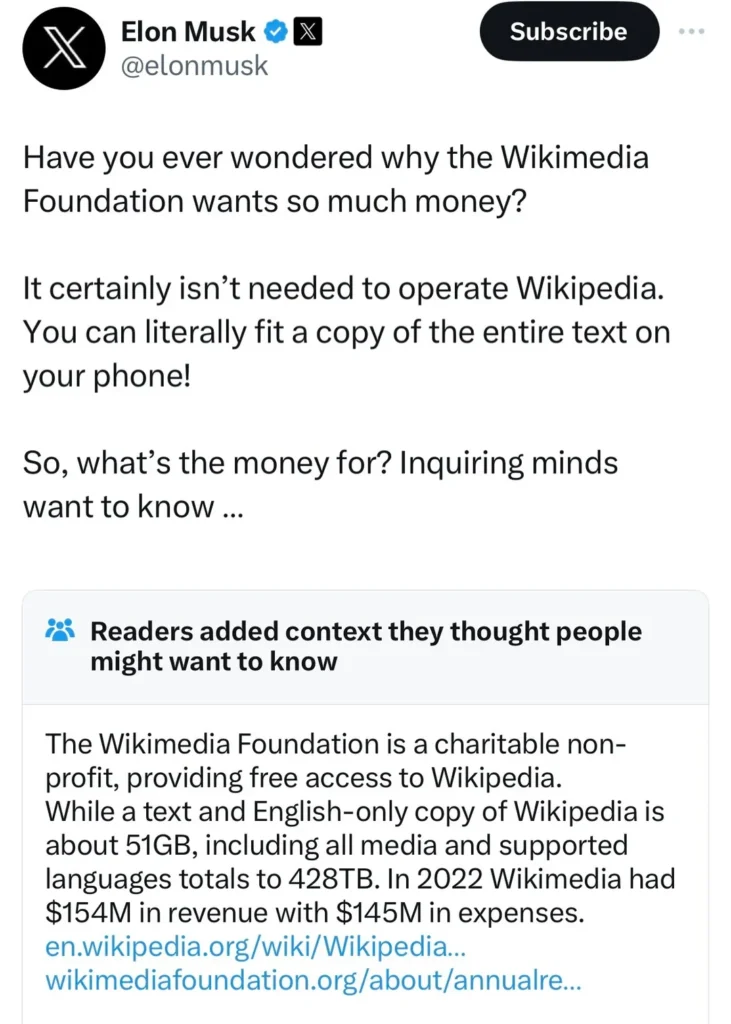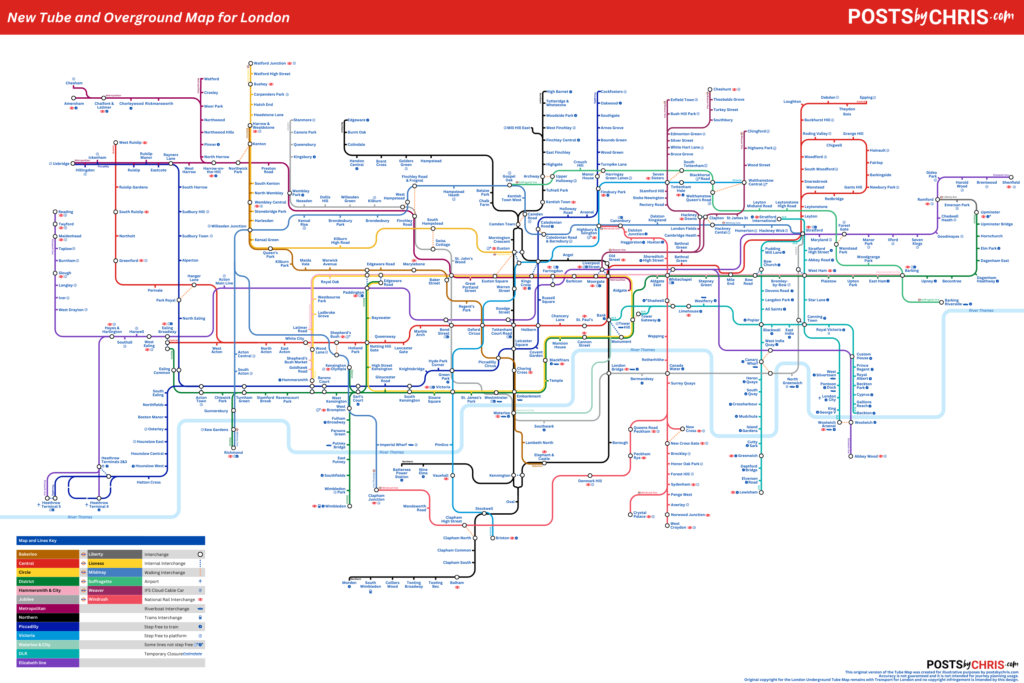Dang, just as I was finally starting to get into Threads properly (after they pushed me away), Mark Zuckerberg had to ruin it for me. I refer of course to the recent news that Meta are changing several of their content moderation policies. For the worse, that is. Yes indeed – not content with being the internets “place for commentary“, Meta are now apparently trying to become the place for bigotry, xenophobia, sexism and fake news. I guess we’re making Threads toxic now?
In case you missed it, Mark Zuckerberg (@zuck) posted some updates to Meta’s policies a few days ago. He said that Meta would:
- Replace fact-checkers with community notes (starting in the US)
- Simplify content politics and remove restrictions on topics like immigration and gender that are “out of touch” with mainstream discourse
- Change how policies are enforced to remove the vast majority of censorship mistakes by focusing on illegal and high-severity violations
- Bring back civic (i.e. political) content
- Move trust and safety teams from California to Texas due to concerns over employee bias
- Work with President Trump to push back against foreign governments going after American companies to censor more
Thats… a lot to unpack.
Some, much more clever and intelligent, people have tied these changes to the upcoming change in Presidential administration. While I can’t comment directly on that, I can certainly see where they’re coming from.
Here are my thoughts on some of these upcoming changes.
Replace fact-checkers with community notes
While there’s a lot I dislike about the coming changes, one of the issues that I’m most concerned about is the elimination of fact-checkers. For some time now, Meta have worked with teams of independent fact-checkers to flag content that isn’t accurate on their platforms. An example of inaccurate information would be the heavy pushing of conspiracy theories and vaccine misinformation during the Covid pandemic.
According to Meta: “Each time a fact-checker rates a piece of content as false on our platforms, we significantly reduce that content’s distribution so that fewer people see it, label it accordingly and notify people who try to share it”. They stress that no content is actually removed unless it also violates their content policies. Meta were until recently firmly behind this approach and even bragged about their success using these fact-checkers during the recent Australian federal elections in 2022.
The new system that they plan on moving to is “community notes” – a system that has now been in use for some time on platforms such as X. Community notes differ from fact checking in the way that members of the community can submit a correction or counter claim to a post. These are then typically voted on by other members before being displayed alongside the disputed content. While this sounds quite similar to fact-checking, it’s not – there are some subtle differences. For one, users are all inherently biased in one way or another whether they believe they are or not. Fact-checking organisations typically have checks and balances to prevent bias, while your average human doesn’t. Additionally, community note systems have the potential to be “gamed” by like minded groups of individuals. If a large enough group doesn’t like a post critical of say, the President, they’ll now have the ability to add their two-cents beneath that content.
I would imagine that this change is aimed at appeasing those who see any attempt at fact-checking as censorship or “fake news”. It’s a huge disappointment to see Meta taking this path. While some people think that platforms have a responsibility to air “both sides” of a debate, I sometimes disagree. I think there are circumstances where it’s important to highlight the correct side, and dismiss the incorrect side – when it comes to pure facts, that is. As an example, climate change is demonstrably happening. Will we now see community notes saying otherwise? I hope not.

Remove restrictions on topics like immigration and gender
Also concerning is the removal of restrictions on the way topics such as immigration and gender are discussed. Members of minority groups who already face untold challenges and biases in their daily lives may now face harassment in the relative safety of social media. Concerning, given that the National Institute for Health recently found that as many as two-thirds of LGBTQ study participants found social media “more comfortable” than offline.
Shortly after these fairly non-specific changes were announced, Casey Newton (@crumbler) of Platformer posted on Threads that he’d uncovered some shocking examples of content that would now be acceptable:
View on Threads
Yes, you’re reading those sample comments correctly. You will now be able to use Meta platforms to describe marginalized groups as “pathetic” and “confused”. While I haven’t yet seen any leaks or examples of permitted comments regarding immigration, I’d imagine it’s along those same lines.
While there’s always an argument to be made for allowing free speech, I’d have to wonder when freedom of speech became a freedom to attack and belittle others. If I walked up to someone on the street and referred to them as “pathetic and confused” then I’d probably get punched in the face. I’d probably deserve it too. For some reason, it’s apparently different if you’re hiding behind a keyboard.
These changes fly rather in the face of the current hateful content policy at Meta which begins: “We believe that people use their voice and connect more freely when they don’t feel attacked on the basis of who they are” and goes on to say “we define hateful conduct as direct attacks against people”.
Perhaps by loosening these restrictions somewhat, Meta hopes to appear less “woke”. Instead, they’re appearing openly hypocritical and opening the doors to widespread abuse and toxicity.
Bringing back civic content
Back in 2021, but especially noticeable in the run-up to the US Presidential Election of 2024, Meta restricted political content in a big way. They decided that they’d no longer proactively push political content from accounts you weren’t already following. If you’re sitting there reading this and thinking “huh, that has the potential to create huge echo chambers” – yes, I’d agree that it would.
The direct result of this policy is that in the run up to the election, people only saw political news and opinions from the side of the spectrum that they’d already deliberately engaged with. Like a page that talks about Trump? That’s all you’re getting now! Followed Kamala HQ on Threads? Here’s a metric ton of her posts. How exactly are people expected to make informed decisions when opposing views are actively hidden from them? It would make it a lot harder, that’s for sure.
Fast forward to a few days ago however, and now Meta are doing a complete 180, saying: “we are also going to recommend more political content based on [your] personalized signals and are expanding the options people have to control how much of this content they see”. Err, so does that mean you’re going to start showing the political content I didn’t deliberately choose to see? Because that’s what it sounds like.
It feels a little off that now there’s a change in administration, Meta are suddenly concerned with you being exposed to opinions you might otherwise have not seen or sought out.
In conclusion
Metas upcoming changes are being spun as “more speech and fewer mistakes” but the truth is that they open the platform up to false information, bigotry and widespread abuse of minorities.
While there’s no definitive link between these upcoming changes and the pending change in administration, it doesn’t take a genius to draw the conclusion that Zuckerberg might be trying to appease Trump ahead of his second term. I don’t necessarily think that Zuckerberg wants to make these changes on a personal level, more that he’s a businessman trying to protect the business.
These changes are of course, controversial, and I’ve seen many posts on Threads decrying them. The problem is, that Meta effectively have everyone over a barrel due to their sheer lack of competition. Sure, I guess your loyal Threads users can jump to ship Bluesky – but what about those loyal to Facebook or Instagram? There simply are no compelling alternatives at this time. Truth told, that’s probably what Zuckerberg is hoping for – you’ll be upset about the changes he’s making for his new friends but you’ll be too stuck to do anything about it.
I’ll see you all at the next election to see what changes come with another new administration.






[…] Update:I went ahead and tried making my own Tube map! You can take a look and read my thoughts…